Trapped by Television
Brief Synopsis
Cast & Crew
Del Lord
Mary Astor
Lyle Talbot
Nat Pendleton
Joyce Compton
Thurston Hall
Film Details
Technical Specs

Synopsis
Television inventor Fred Dennis needs money to complete his device and gets a job as a bill collector through the assistance of Rocky O'Neil, a tough collection agent who is fascinated by Fred's invention. When Fred tries to collect from Barbara "Bobby" Blake, she sees in him an opportunity to make a quick buck by promoting his television and gets $200 from Curtis, president of the Paragon Broadcasting Company. Curtis' every attempt to get television broadcasting rights has been prevented by his general manager, Standish, who is plotting to overtake the organization. Having become fond of Fred, Bobby uses Curtis's money to invest in Fred's television, and he attempts a demonstration of the unit at Paragon. Standish sabotages the television, however, and plans to promote his own television. Bobby pawns her fur coat and uses the money to help Fred repair his television. She then outsmarts Standish with the help of her friend Mae and arranges for a second demonstration of Fred's invention at Paragon. Standish brings some thugs to Fred's house and starts beating up and him and Bobby, but Bobby turns on the television and the brawl is transmitted to Paragon. Paragon officials send police to Fred's house, and Standish and his men are arrested. Paragon purchases Fred's television and he and Bobby are united, as are Mae and Rocky.

Director
Del Lord
Cast

Mary Astor
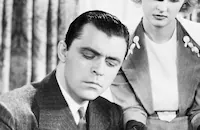
Lyle Talbot
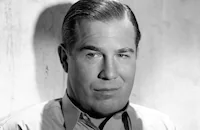
Nat Pendleton
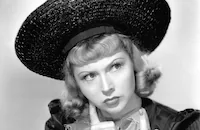
Joyce Compton
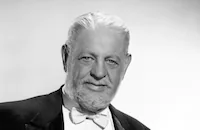
Thurston Hall
Henry Mollison
Wyrley Birch
Robert Strange
Marc Lawrence
Wade Boteler
Lillianne Leighton

Russell Hicks
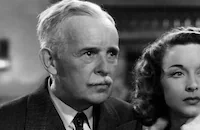
Howard C. Hickman
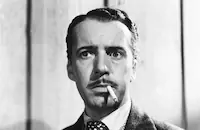
Boyd Irwin Sr.
Harry C. Bradley
Bobby Gordon
Neil Moore
Max Wagner
Lloyd Whitlock
Ralph Mccullough
Eddie Fetherston
Caroline Houseman
Harry Stafford
Bruce Sidney
George Webb
Lillian Stuart
Crew

Film Details
Technical Specs

Articles
Marc Lawrence (1910-2005)
Born Max Goldsmith on February 17, 1910, in the Bronx, Lawrence had his heart set on a career in drama right out of high school. He enrolled at City College of New York to study theatre, and in 1930, he worked under famed stage actress Eva Le Gallienne. Anxious for a career in movies, Lawrence moved to Hollywood in 1932 and found work immediately as a contract player with Warner Bros. (an ideal studio for the actor since they specialized in crime dramas). He was cast as a heavy in his first film, If I Had a Million (1932). Although his first few parts were uncredited, Lawrence's roles grew more prominent: a sinister henchman in the Paul Muni vehicle in Dr. Socrates (1935); a conniving convict aiding Pat O'Brien in San Quentin (1937); a menacing thug stalking Dorothy Lamour in Johnny Apollo (1940); the shrewdly observant chauffeur in Alan Ladd's breakthrough hit This Gun For Hire (1942); and one of his most memorable roles as Ziggy, a fedora wearing mobster in the Bogart-Bacall noir classic Key Largo (1948).
Lawrence, when given the opportunity, could play against type: as the prosecuting attorney challenging Tyrone Power in Brigham Young (1940); a noble aristocrat in the Greer Garson-Walter Pidgeon period opus Blossoms in the Dust; and most impressively, as a deaf mute simpleton in the rustic drama The Shepherd of the Hills (both 1941). Better still was Lawrence's skill at comedy, where his deadpan toughness worked terrifically as a straight man against the likes of Joe E. Brown in Beware Spooks (1939); Abbott and Costello in Hit the Ice (1943); Penny Singleton in Life with Blondie (1945); and Bob Hope in My Favorite Spy (1951).
After that, Lawrence's career took a turn downward spin when he was labeled a communist sympathizer during the Hollywood witch hunts of the early '50s. He was exiled in Europe for a spell (1951-59), and when he came back, the film industry turned a blind eye to him, but television overcompensated for that. Here he played effective villains (what else?) in a series of crime caper programs: Peter Gunn, Johnny Staccato, The Untouchables, Richard Diamond, Private Detective; and eventually made a welcome return to the big screen as a returning exiled gangster in William Asher's underrated mob thriller Johnny Cool (1963).
It wasn't long before Lawrence found himself back in the fray playing in some big box-office hits over the next two decades: Diamonds Are Forever (1971), The Man with the Golden Gun (1974), Marathon Man (1976), Foul Play (1978); and The Big Easy (1987). Sure he was cast as a gangster, but nobody could play a rough and tumble mob boss with more style or conviction.
Interestingly, one of his finest performances in recent years was in television, as a severely ill old man unwilling to accept his fate in a fourth season episode of ER (1997-98). His last screen role was just two years ago, as a nimble minded VP in Looney Tunes: Back in Action (2003).
In 1991, Lawrence published a memoir about his venerable career, Long Time No See: Confessions of a Hollywood Gangster that received much critical acclaim. He has also developed a cult following due to his appearances in such offbeat items as From Dusk to Dawn and Pigs aka Daddy's Deadly Darling, the 1972 horror film he directed and starred in with his daughter Toni. He is survived by his wife, Alicia; two children from a previous marriage, Toni and Michael; and a stepdaughter Marina.
by Michael T. Toole

Marc Lawrence (1910-2005)
Quotes
Trivia
Notes
The working title of this film was Caught by Television.














